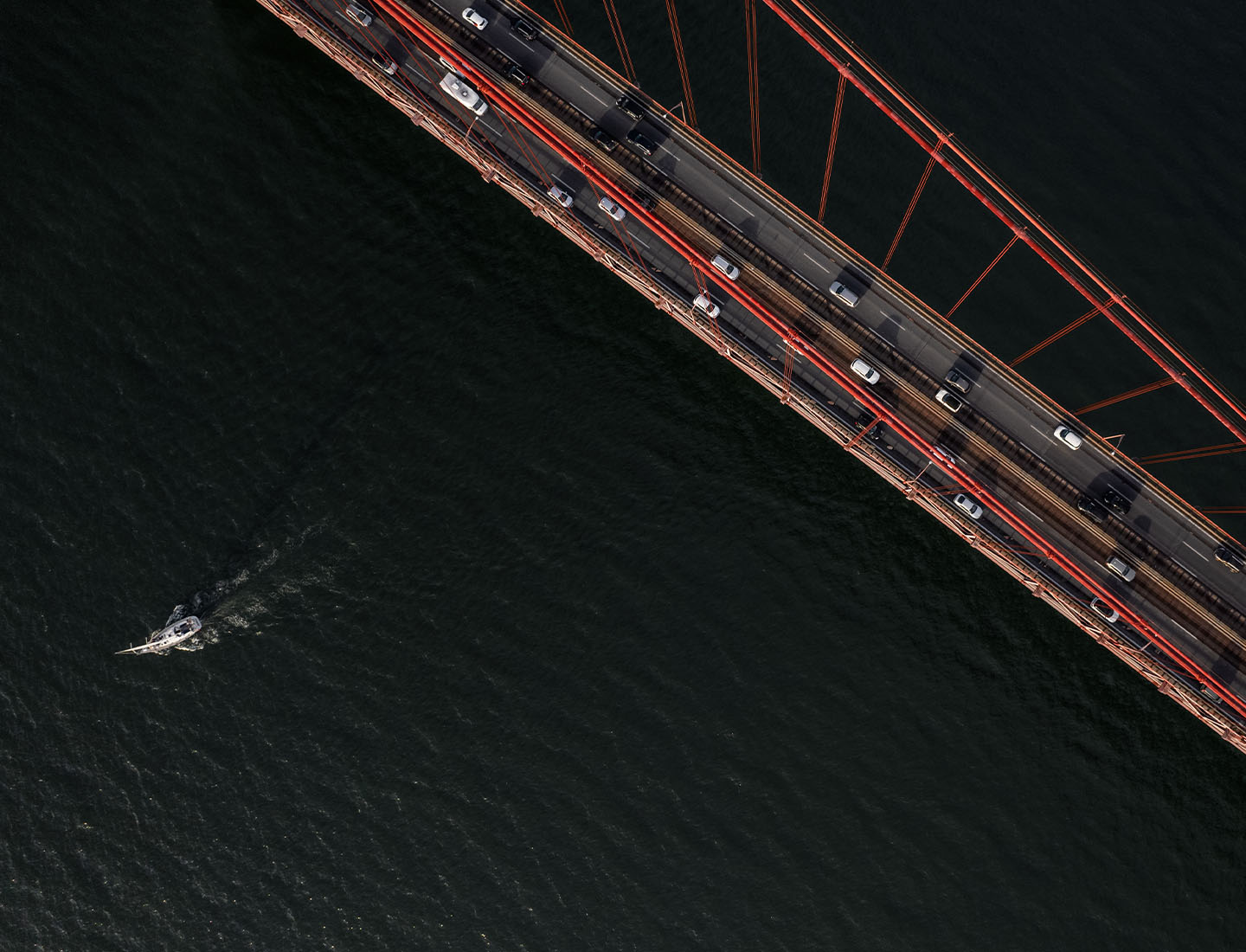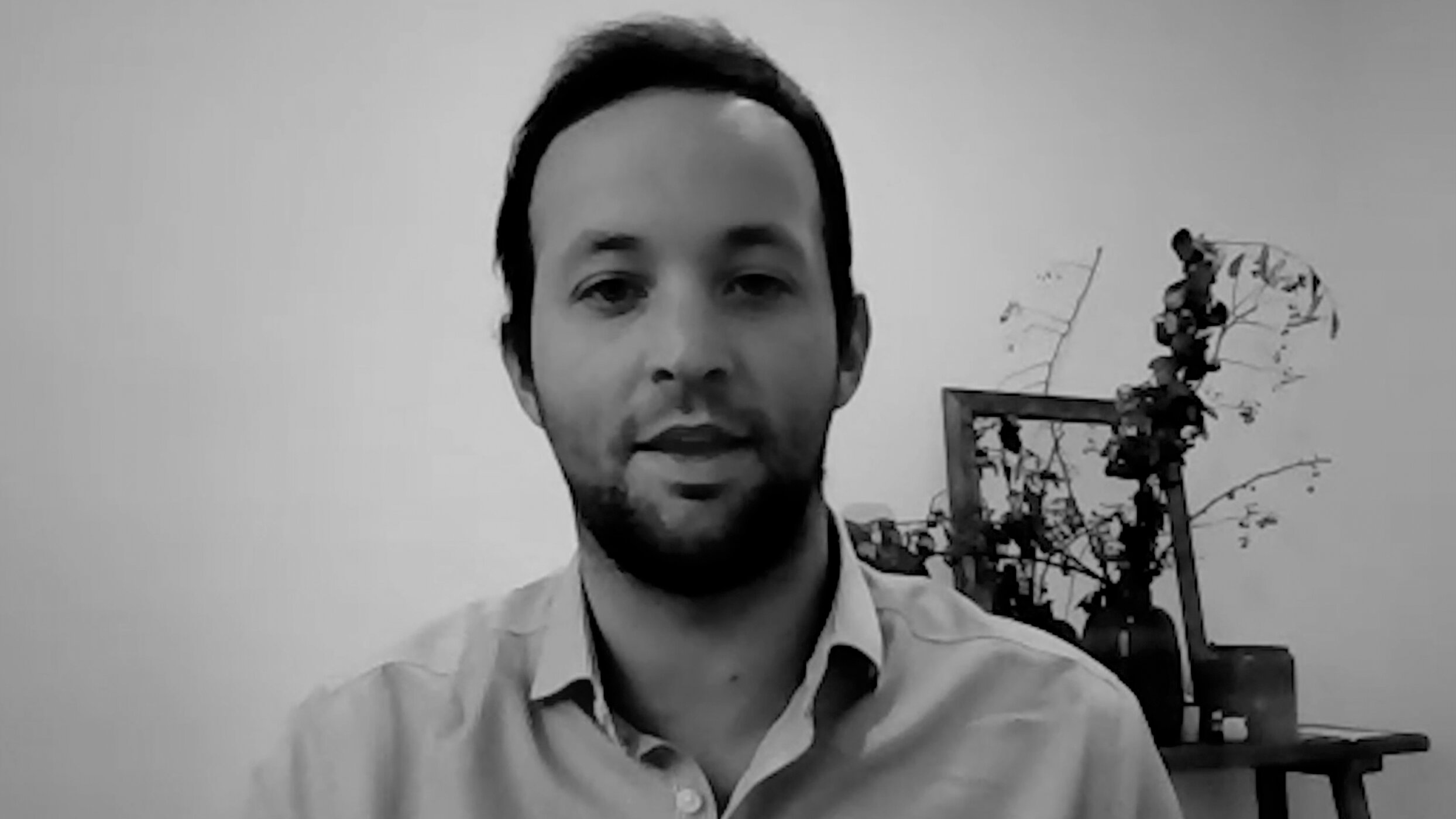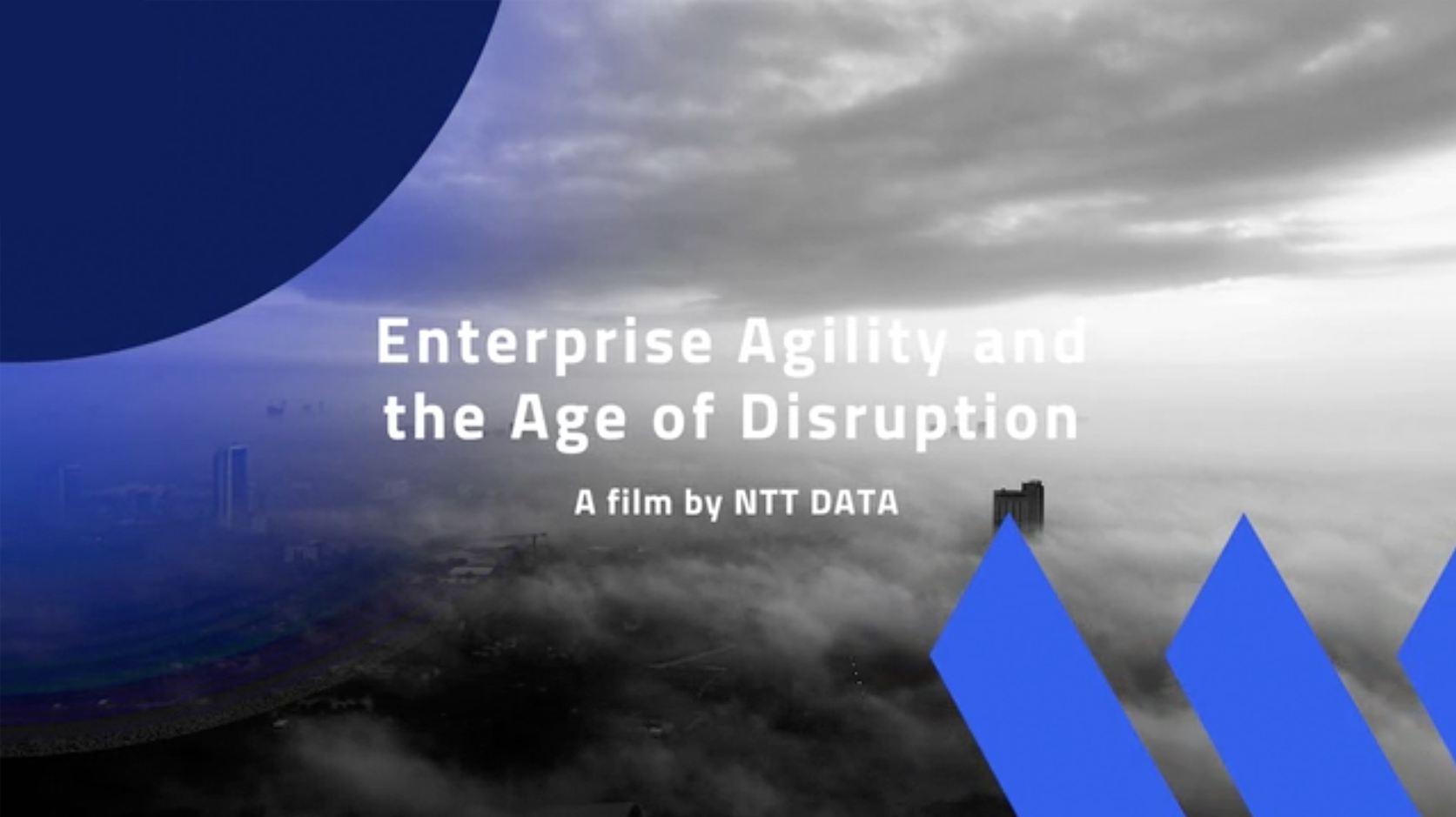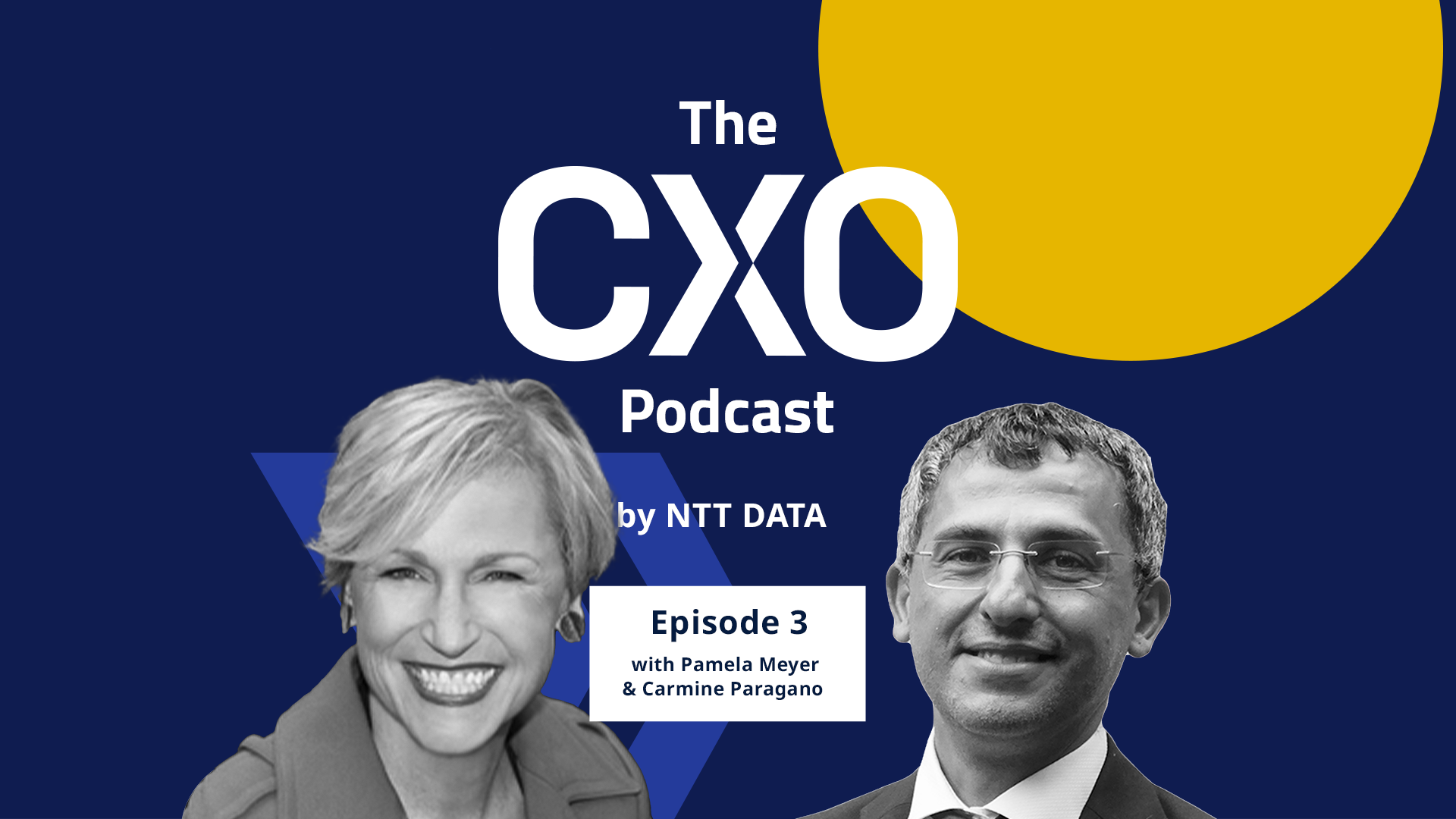63 results
Scenario Planning: A Tool for Navigating Future Turbulence
In the midst of uncertain times that only look set to continue, one thing is particularly crucial to an organization’s ability to navigate confidently: the ability – and agility – to envision and strategize for multiple possible futures.
Operational agilityOperational excellenceStrategyDigital Transformation in the Consumer Goods Industry
When it comes to consumer goods, standards are exactingly high across the industry, and processes are often complex. Digital transformation across multiple vectors – from logistics to packaging to quality control – can both revolutionize efficiency and ensure that the highest standards are met.
Breakthrough technologiesCXOperational agilityWorking practicesCloud is the Future of Banking (But Getting There is Not Easy)
As digital native challenger banks rapidly encroach, it has become imperative for retail banks to move to the cloud to compete. There are numerous benefits associated with cloud migration, but they should also be aware of the pitfalls.
BankingBreakthrough technologiesFinanceFinancial servicesOperational agilityPragmatism and Innovation: The Perfect Partnership in Uncertain Times
Against the backdrop of a somewhat tumultuous economic landscape, a new trend is emerging: many companies are assessing the environment and deciding to direct their innovation efforts inwards, towards the more pragmatic matters of organizational efficiency and agility. When it comes to nurturing both long-term growth and customer value, this is a strategy that makes sense.
InnovationOperational agilityOrganisational designPost-Covid workplaceActing on Data and Digitalization
When times are uncertain and we don’t have the comfortable leeway we are used to, how can we use the basics to uncover the diamonds in the rock pile? How does data drive the digital agenda to overcome the perceived panacea of technology, and get to the answers which make a difference?
Data strategy & BIOperational agilityStrategyPerseverance, Servant Leadership and Achieving Agility in Uncertainty
In a global market defined by uncertainty and choppy economic headwinds, change isn’t always easy to absorb – but with an agile mindset, companies can achieve remarkable outcomes that turn challenges into success stories.
Employee wellbeingOperational agilityShaping cultureStrategyHow Organizations Can Accelerate Growth and Self-Fund Their Digital Journey
We’re experiencing a time of constant disruption. Global pandemics, geopolitical struggles and economic challenges have leaders looking for ways to move beyond merely surviving. How can businesses capitalize on constant change, transforming even when budgets are tight, finding talent is tough, and legacy systems can hold us back from innovating faster on behalf of customers?
Digital transformationOperational agilityOrganisational designPost-Covid workplaceStrategyTransformative Stickiness: Embracing the Who, What and Why in Data-Driven Organizations
Uncertainty and disruption are, ironically, the only certainties on the business horizon, bringing with them complexities and unplanned eventualities that demand organizations be agile, flexible and internally disruptive. Following the data with strategic intent is key to shaping how the organization faces these forces, and how it supports its people as they too experience the complexities of change in uncertain times.
Data strategy & BIEXOperational agilityOperational excellenceLeading with Empathy: How to Build High Impact Teams
In the wake of a pandemic that has reshaped countless aspects of life as we once knew it, it is clear that many of the ‘old models’ – of working, corporate culture, and especially leadership – are no longer fit for purpose. In this new landscape, where many of us have re-assessed our priorities and are taking care to focus more on our well-being, one leadership quality is more impactful than all others in maintaining employee engagement: empathy.
Operational agilityStrategyTeam dynamicWorking practicesThe Evolving Role of the CFO: From Financial Anchor to Strategic Leader
As the business landscape grows ever more uncertain and disrupted, CFOs need to reinvent themselves so that their focus increasingly falls on fostering innovation and promoting adaptability, rather than solely on accounting, compliance and safeguarding assets. Those who can become comfortable in today’s climate of upheaval and change will discover new opportunities in what will be an increasingly key leadership role.
Corporate governanceESGFinanceOperational agilityStrategyAgility in Uncertainty: Surfing the Waves, Reaping the Rewards
For an enterprise to grow in uncertain times, it requires strategic approaches that are focused on seamless transformation – while deftly managing the gap between strategic intent and real-world implementation. This means using the right models and having the right people, because both need to align to ensure relevant and scalable transformation.
Operational agilityOperational excellenceStrategyTeam dynamicWorking practicesHow to Make the New, Hyper-Connected World of Work Work for Everyone
Successful leadership in today’s world of hybrid work requires a reset in how we manage and empower our teams. What we have lost to remote work – those watercooler moments – must be reinstated. Leaders should focus on facilitating social connections and creating a fertile breeding ground for innovation by establishing the structures for employees to network and collaborate across boundaries.
EXHybrid workingOperational agilityShaping cultureStrategyWorking practicesA Lesson in Workplace Learning
With job skills changing so rapidly and the increasing competition for talent, workplace learning plays a pivotal role in keeping organizations at the top of their game. By making L&D departments more agile and fluid and creating a learning-led company culture, organizations can always keep ahead of new competencies, and talent can be nurtured from within.
EducationL&DOperational agilityTalent managementEffective Change Management for a Resilient Workforce
Change management ensures organizations can implement new ways of working, new technologies and new methodologies – as well as cultural and mindset changes – without losing employee traction and engagement. This vital element of project delivery keeps people and productivity on side while shifting business foundations towards the future.
EXHybrid workingOperational agilityOperational excellenceTeam dynamicWorking practicesThe Hybrid Office: A Work in Progress
As interactions between corporate teams reach the point where virtual is as effective as in-person, the very nature and purpose of the physical office has permanently changed. Hybrid working has proven productive for organizations and rewarding for individuals, and is here to stay. Rather than cling to the past, we must embrace the opportunities of this new post-pandemic business environment – and as such improve speed of decision-making, efficiency of operations and the wellbeing of the entire workforce.
EXHybrid workingOperational agilityPost-Covid workplaceTalent managementMisconceptions Around Zero Trust
There are misconceptions around Zero Trust, as businesses may be fearful of a perceived need to completely rebuild their security architecture, but all it takes is a step-by-step approach. What is the journey to making the security of your business airtight?
Data privacyOperational agilitySecurityTrustWorking practicesNTT DATA’s Zero Trust Journey 2: Architecture (and What We’ve Learned)
The zero trust journey is all about taking measures to assure your business security at every level. While it sounds complex, it is more simple than it seems, and is worth every effort to ensure that access to data is only granted to those who have sufficiently proved their identity at every stage necessary.
Data privacyOperational agilitySecurityTrustWorking practicesWelcome to the fifth issue of CXO Magazine.
Continuous innovation used to be enough to drive growth. However, today’s organisations also must innovate at speed and scale. Indeed, a frequent question we hear from CEOs around the world is: “How can my organisation adapt and move faster?”
Artificial intelligenceBreakthrough technologiesIssue welcomeOperational agilityThe Evolution of Buying Habits in Enterprise IT
The way enterprises are buying IT is changing, and so are the characteristics of the buyers. Several big trends are driving this transformation, from the need for agility to different expectations of time to value and the liberating possibilities of the cloud. Now, IT departments can stitch everything together to meet their exact needs much faster than ever before.
Breakthrough technologiesOperational agilityProcurementWorking practicesIntelligent Organisations: A Systemic Approach
Organisations can be designed to behave intelligently and sensitively, and indeed they must if they are to master the complexity of our current environment. Drawing on Systems Theory and Cybernetics, we can understand the prerequisites of organisational intelligence, and create the conditions for our organisations to flourish.
Operational agilityOrganisational designStrategyWhite Paper : History Made Faster: Why Automation Often Fails, But Doesn’t Have To
Business norms have been swept away by the Covid-19 pandemic; because of this disruption, change had to go deeper and faster than conventionally thought possible. Instead of “returning to normal”, we must now refocus technologies, working practices and business models to create an environment that will be starkly different to the old ways of working.
AutomationOperational agilityStrategyWhitepaperCybersecurity: The Fabric of Any Intelligent Organisation
Does today’s need for cyber vigilance conflict with the move towards organisational intelligence and its need to share data? We believe the opposite is true – robust cybersecurity can be a powerful enabler of progress.
Data privacyOperational agilityRisk managementSecurityThe Role of Operations: Sustainability, Optimisation and Cost Reduction Working Together
R&D into new forms of power generation, such as solar and wave power, might always attract the most attention, but the teams and individuals running the operational side of businesses also have the opportunity to make a difference. Significant change can come from internal optimisation.
ESGOperational agilityOperational excellenceStrategyWhite Paper: Shaping the change
There are a number of reasons for the pressure to change that many companies are feeling: economic globalisation, unforeseen crises, the rising complexity of business processes, and digitalisation at all levels to name a few. Companies are responding with new structures and processes. In doing so, management has to rely heavily on HR, because every positive change is built on the willingness and skillsets of employees. HR shapes extensive aspects of change and HR managers, therefore, are increasingly becoming change managers – and have to stand the test of this new role.
Operational agilityShaping cultureTalent managementWhitepaperWorking Without Boundaries and the Enterprise of Tomorrow
Agile organisations are defined by how closely they’ve looked at costs, technology and digital innovation and leveraged these to survive in times of uncertainty. Learning from this approach, businesses can reap the benefits of cultural flexibility, process agility, and operational adaptability – allowing employees to work without boundaries while still achieving benchmarks of productivity.
Hybrid workingOperational agilityTalent managementWorking practicesWhite Paper: How to make Business Agility a reality
Organisations that are focused, resilient, responsive, adaptable, versatile and able to sustainably innovate are successful. Taken together, these traits are known as ‘Business Agility’. The benefits are significant, including better organisational health – the best indicator of long-term performance. Despite this, many organisations struggle, with common challenges holding them back. At NTT DATA, we know it doesn’t have to be this way. This paper assesses the underlying challenges and describes our Business Agility framework to help clients thrive in the years to come.
Operational agilityStrategyWhitepaperWorking practicesThe Secret of Enterprise Agility: Where Science Meets Organisational Change
Most mindsets or frameworks developed to support an environment where employees can confidently adapt to market opportunities, such as Agile, Lean, and Scrum are not enough. A new framework of reference is required, one that draws on neuroscience, organisational psychology and new types of leadership.
Operational agilityOrganisational designStrategyTeam dynamicThe Challenge of Continuous Change
Adapt or perish. The rate of change in the post-Covid world is relentless. With the competitor landscape and customer demands changing at speed, the new enterprise must be hyper-adaptive, able to flex and adopt the agile mindset and principles to ultimately achieve competitive advantage and build better relationships with their customers, staff and communities.
Operational agilityShaping cultureStrategyWorking practicesReimagining Work
The time for command-and-control is gone. To cope with the level and pace of change, the rules of business planning and management must be rewritten – with flexibility, robustness and self-organisation at the root. Rebelling against the norm is not only advantageous; it's critical.
Operational agilityShaping cultureStrategyLearning to Transform: How Collaboration and Care Help Us Deal With Change
Learning is a critical part of an organisation’s ability to transform. The steep learning curve on cloud native migrations offers a useful lens through which to understand how we can improve both training and ways of working, in order to create an agile and future-fit organisation.
Breakthrough technologiesOperational agilityTalent managementTeam dynamicWelcome to the third issue of CXO Magazine
Welcome to the third issue of CXO Magazine. Our theme for this issue is ‘Agility in the Age of Disruption’
Issue welcomeOperational agilityPost-Covid workplaceStrategyWelcome LettersCultivating Agile and Adaptive Teams the Military Way
With a ‘mission command’ philosophy, organisations can adapt to the VUCA environment businesses face today. By focusing on the team’s coherence as a whole, and its ability to share information and make decisions effectively, organisations can thrive in uncertainty.
Operational agilityShaping cultureStrategyTeam dynamicChange Is Always An Opportunity
Change is the only constant, in life and in business. But change isn’t something to be overcome – instead, we should regard it as the catalyst for innovation, agility and organisational resilience. An agile change management approach is the springboard from which businesses can catapult towards optimised processes, better ways of working and a flexible, sustainable enterprise.
Operational agilityOrganisational designShaping cultureStrategyBusiness Re-Set: Why Organisational Fluidity is the Future of Your Enterprise
The traditional rigid business structure is no longer fit for purpose. As enterprises look towards a post-Covid future, adopting a more fluid approach to their structural architecture will enable them to become agile and flexible companies, fit to meet today's and tomorrow's challenges.
Operational agilityOrganisational designShaping cultureStrategyBringing Everyone Along: A Model for Maximising Adoption in Change Projects
Change management is an underrated tool in the fight against continual disruption. With a few basic tenets, companies can get a handle on quickly assembling resources – and, crucially, maximising buy-in from the workforce – in response to changing external and internal environments.
EXOperational agilityTeam dynamicWorking practicesAccelerating Data Insights to Steer Smoothly Through Crisis
Leaders will do well to remember that crises always present opportunities for improvement and advancement. By embracing agility and using data and analytics to their best advantage, leaders will be in a stronger position to navigate through the near-term challenges that the pandemic has raised.
Data strategy & BIOperational agilityWorking practicesDesigning Organisation Agility
To go beyond the surface-level of this century’s buzziest word and design a truly agile organisation, enterprises need to understand the intricacies of agility. And beyond that, they need to examine whether an agile approach is likely to benefit their organisation at all.
Operational agilityOrganisational designShaping cultureStrategyLeading the Agility Shift: Slowing Down to Go Fast
Organisations looking to urgently improve agility across the enterprise will find that their leaders across all levels need support in making a mindset shift. To make this shift is neither instant nor effortless, organisations must make, model and coach for it to ensure the success of agile initiatives.
Operational agilityPost-Covid workplaceShaping cultureStrategyWhite Paper: Agility in the Time of Covid
How is the Covid-19 pandemic different from other crises, and how can organisations build resilience? A well kept secret of the most successful companies across the globe is speed-to-learn. If you can learn quickly, you can change quickly, and if you can change quickly, you can capitalise on crises, extreme events, and the ever-shifting inclinations of consumers.
Operational agilityPost-Covid workplaceStrategyWhitepaperThe Right Kind of Innovation
Looking out at the current business landscape, it’s evident that the established order is disassembling everywhere we turn: the pace of change makes innovation a priority for every organisation. But prioritising ideas, evaluating what to invest in and quantifying impact is still a stumbling block for many businesses.
InnovationOperational agilityShaping cultureStrategy
















































